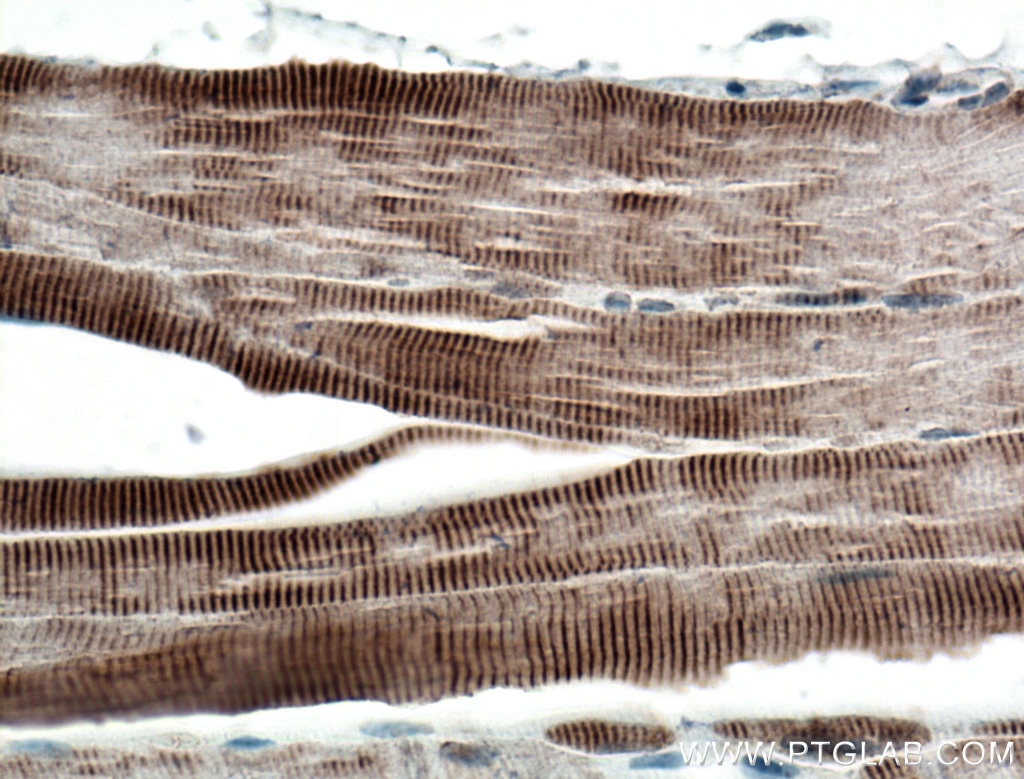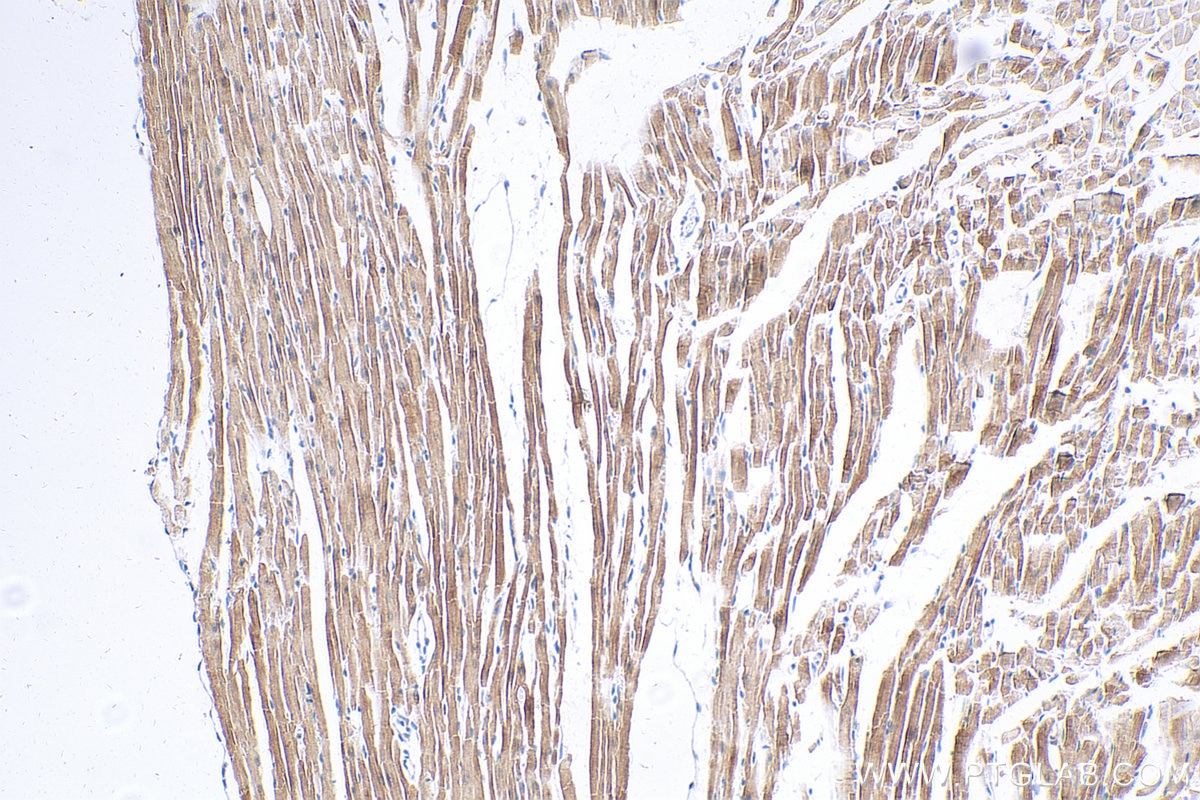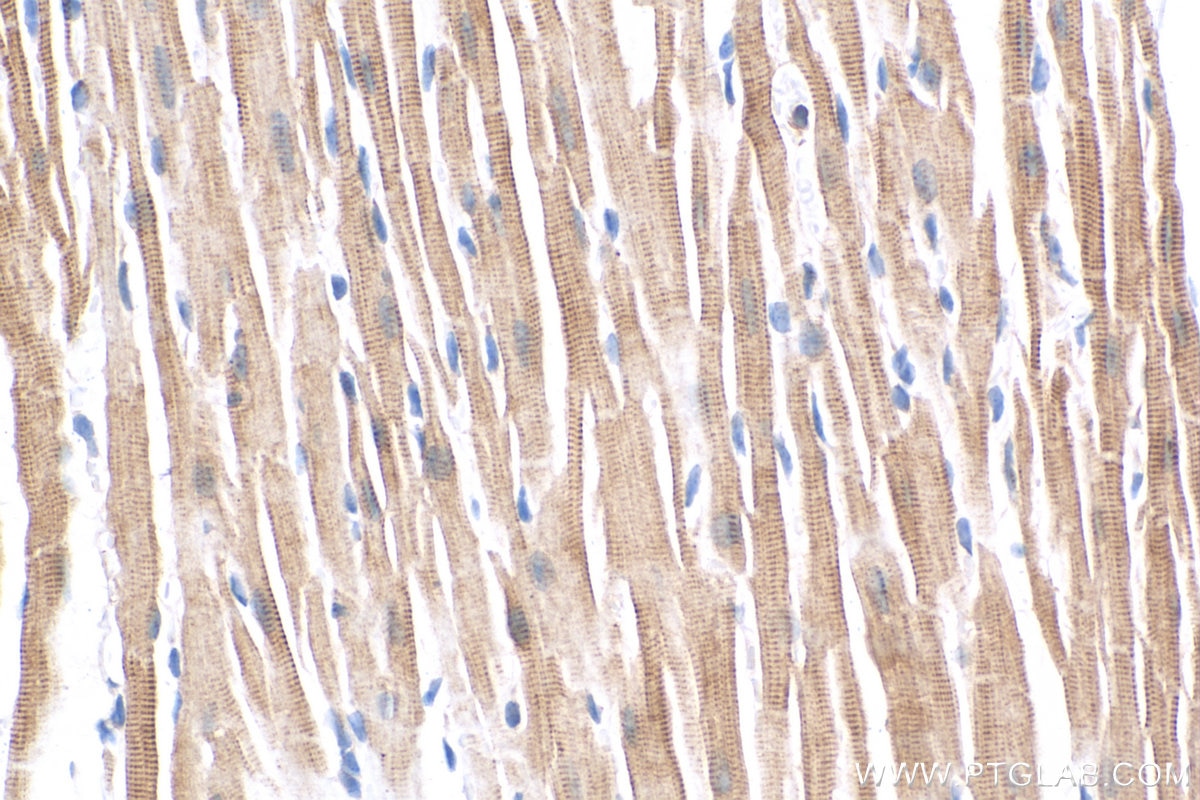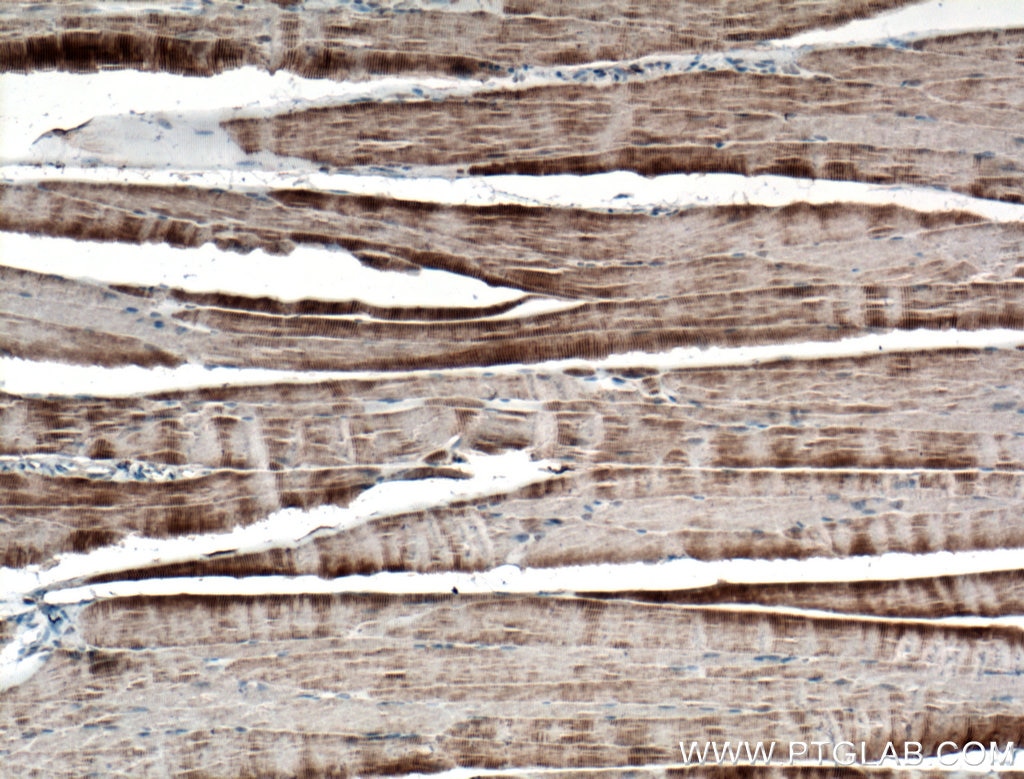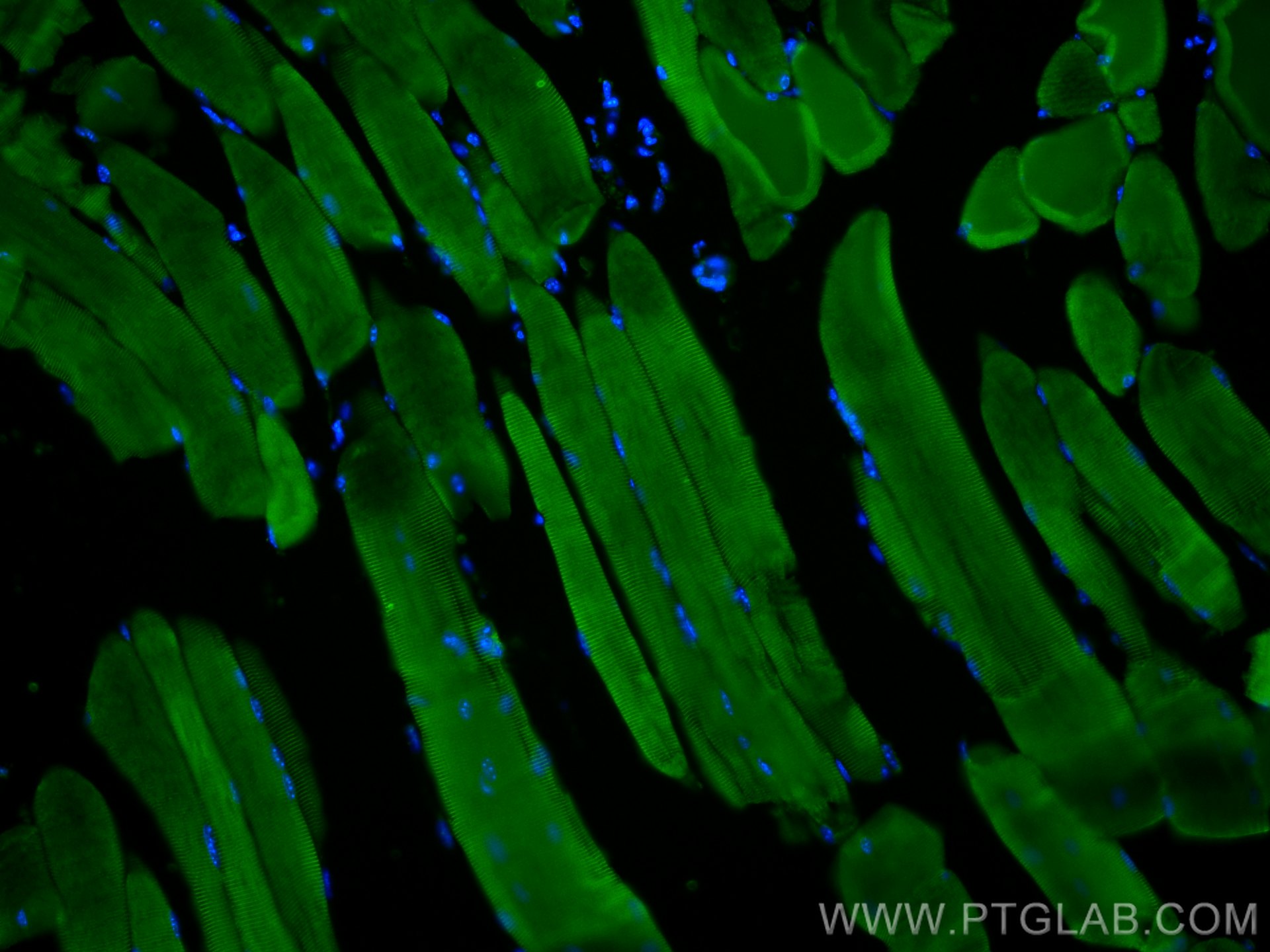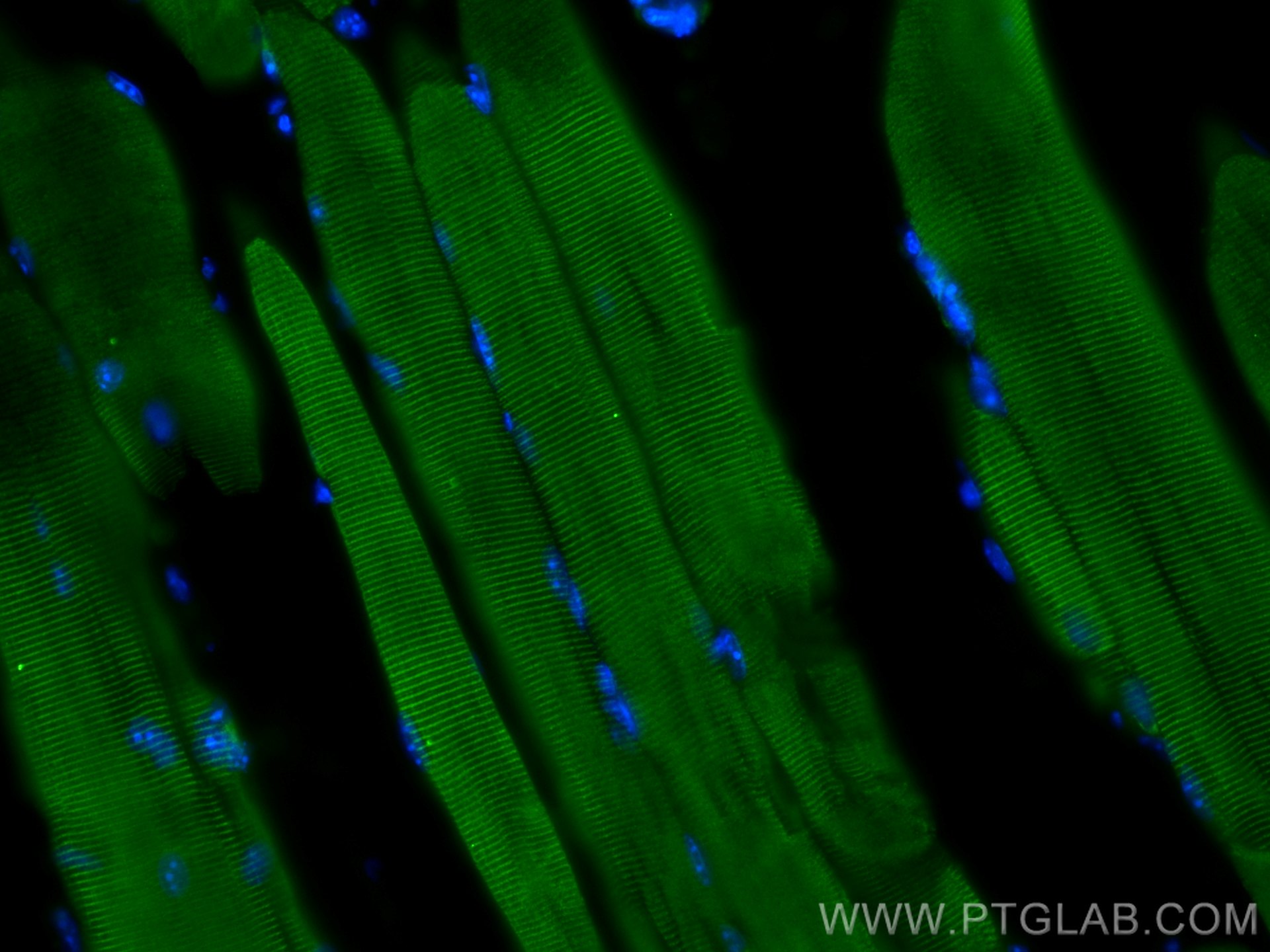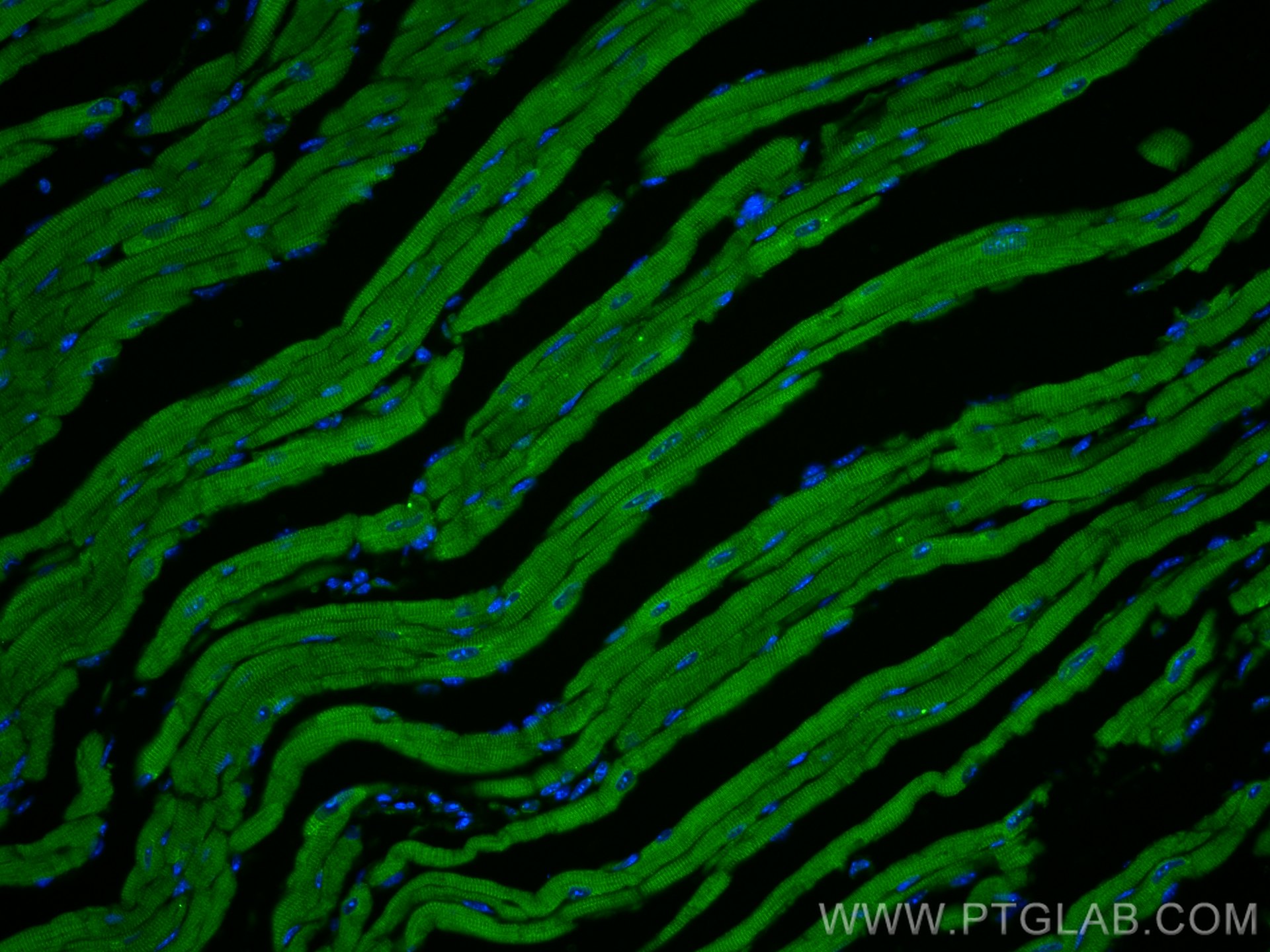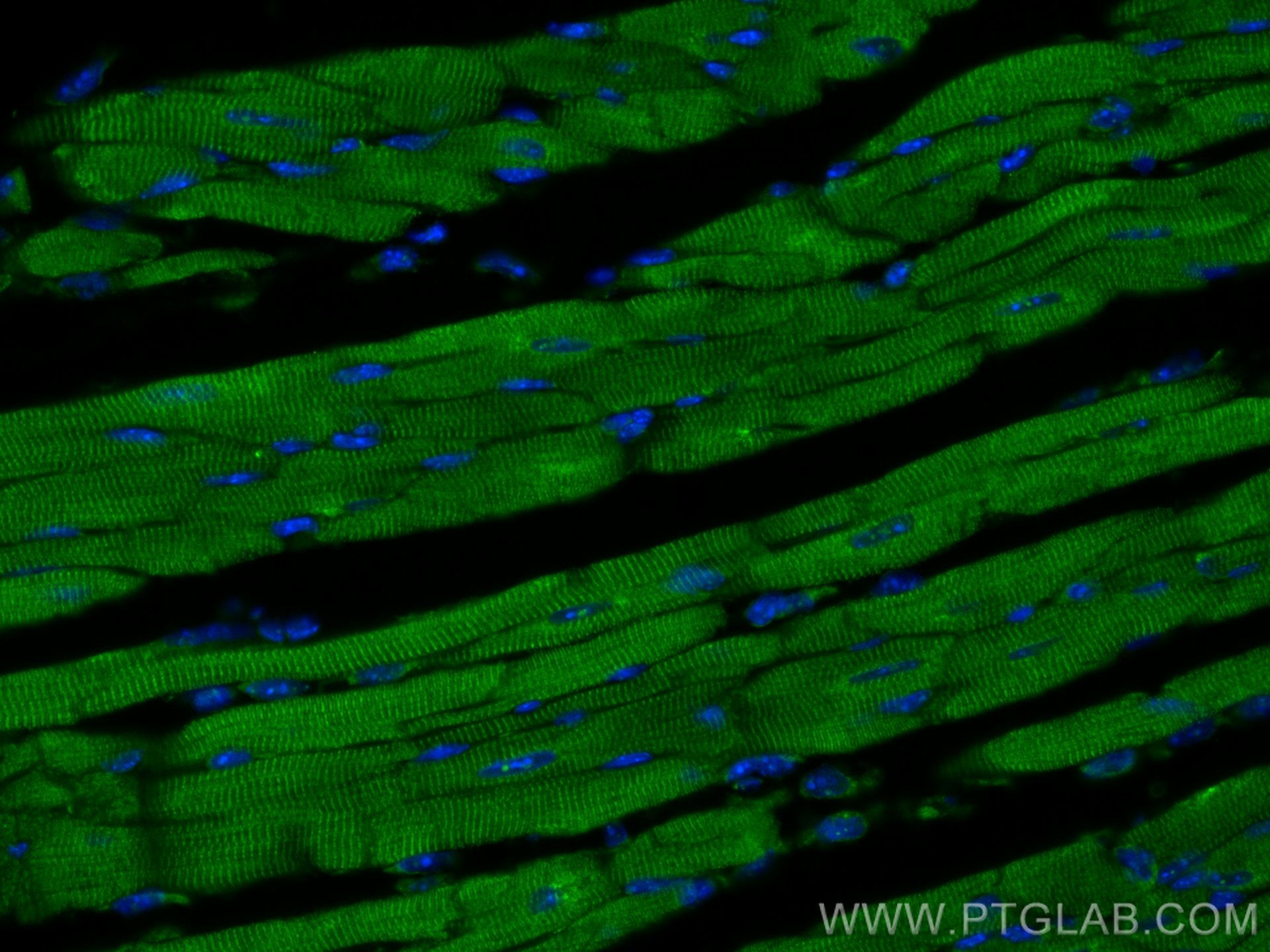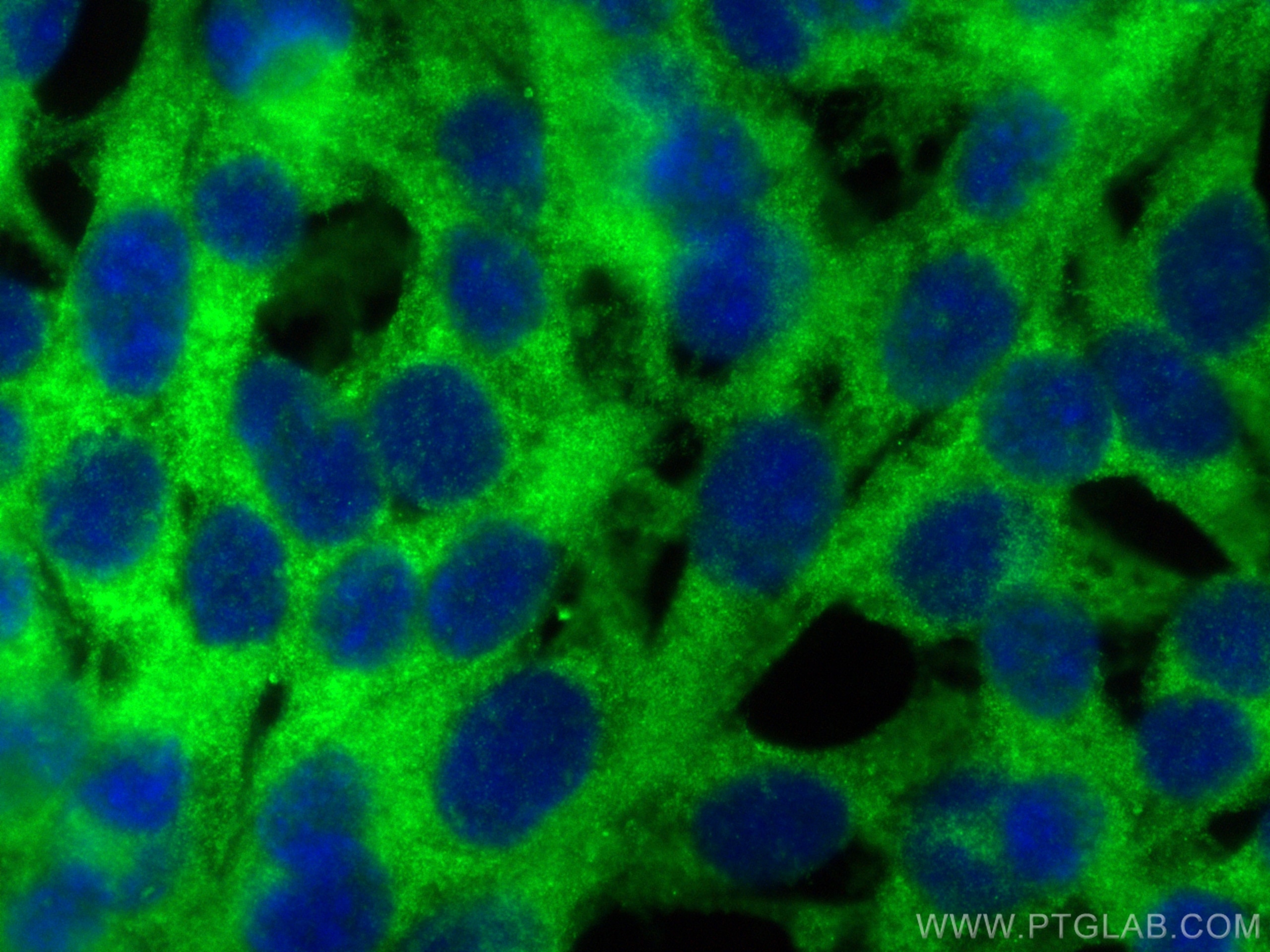Anticorps Polyclonal de lapin anti-Titin
Titin Polyclonal Antibody for IHC, IF/ICC, IF-P, ELISA
Hôte / Isotype
Lapin / IgG
Réactivité testée
Humain, souris
Applications
IHC, IF/ICC, IF-P, ELISA
Conjugaison
Non conjugué
N° de cat : 27867-1-AP
Synonymes
Galerie de données de validation
Applications testées
| Résultats positifs en IHC | tissu cardiaque de souris, tissu de muscle squelettique de souris il est suggéré de démasquer l'antigène avec un tampon de TE buffer pH 9.0; (*) À défaut, 'le démasquage de l'antigène peut être 'effectué avec un tampon citrate pH 6,0. |
| Résultats positifs en IF-P | tissu de muscle squelettique de souris, tissu cardiaque de souris |
| Résultats positifs en IF/ICC | cellules NIH/3T3, |
Dilution recommandée
| Application | Dilution |
|---|---|
| Immunohistochimie (IHC) | IHC : 1:200-1:800 |
| Immunofluorescence (IF)-P | IF-P : 1:50-1:500 |
| Immunofluorescence (IF)/ICC | IF/ICC : 1:200-1:800 |
| It is recommended that this reagent should be titrated in each testing system to obtain optimal results. | |
| Sample-dependent, check data in validation data gallery | |
Applications publiées
| IF | See 6 publications below |
Informations sur le produit
27867-1-AP cible Titin dans les applications de IHC, IF/ICC, IF-P, ELISA et montre une réactivité avec des échantillons Humain, souris
| Réactivité | Humain, souris |
| Réactivité citée | Humain, souris |
| Hôte / Isotype | Lapin / IgG |
| Clonalité | Polyclonal |
| Type | Anticorps |
| Immunogène | Titin Protéine recombinante Ag27496 |
| Nom complet | titin |
| Masse moléculaire calculée | 3816 kDa |
| Numéro d’acquisition GenBank | NM_001256850 |
| Symbole du gène | Titin |
| Identification du gène (NCBI) | 7273 |
| Conjugaison | Non conjugué |
| Forme | Liquide |
| Méthode de purification | Purification par affinité contre l'antigène |
| Tampon de stockage | PBS with 0.02% sodium azide and 50% glycerol |
| Conditions de stockage | Stocker à -20°C. Stable pendant un an après l'expédition. L'aliquotage n'est pas nécessaire pour le stockage à -20oC Les 20ul contiennent 0,1% de BSA. |
Informations générales
Titin, or connectin, is a giant muscle protein expressed in the cardiac and skeletal muscles that spans half of the sarcomere from Z line to M line. It plays a key role in muscle contraction and relaxation, maintaining the structural integrity of the myotome(PMID: 11846417). Mutations in Titin are associated with familial hypertrophic cardiomyopathy 9, and autoantibodies to titin are produced in patients with the autoimmune disease scleroderma(PMID: 15802564).
Protocole
| Product Specific Protocols | |
|---|---|
| IHC protocol for Titin antibody 27867-1-AP | Download protocol |
| IF protocol for Titin antibody 27867-1-AP | Download protocol |
| Standard Protocols | |
|---|---|
| Click here to view our Standard Protocols |
Publications
| Species | Application | Title |
|---|---|---|
Elife A transcriptome atlas of the mouse iris at single-cell resolution defines cell types and the genomic response to pupil dilation. | ||
Dev Biol Aberrant differentiation of second heart field mesoderm prefigures cellular defects in the outflow tract in response to loss of FGF8 | ||
Cell Stem Cell Generation of self-organized neuromusculoskeletal tri-tissue organoids from human pluripotent stem cells | ||
Physiol Rep Germline deletion of Rgs2 and/or Rgs5 in male mice does not exacerbate left ventricular remodeling induced by subchronic isoproterenol infusion | ||
Stem Cell Res Generation of a human induced pluripotent stem cell line YCMi004-A from a patient with dilated cardiomyopathy carrying a protein-truncating mutation of the Titin gene and its differentiation towards cardiomyocytes |
Avis
The reviews below have been submitted by verified Proteintech customers who received an incentive for providing their feedback.
FH Víctor (Verified Customer) (01-26-2023) | The antibody is a bit dirty but specific for muscle cells. I'm trying to evaluate specific sarcomeric structures with higher magnifications, and they seem to be marked. So the antibody is OK.
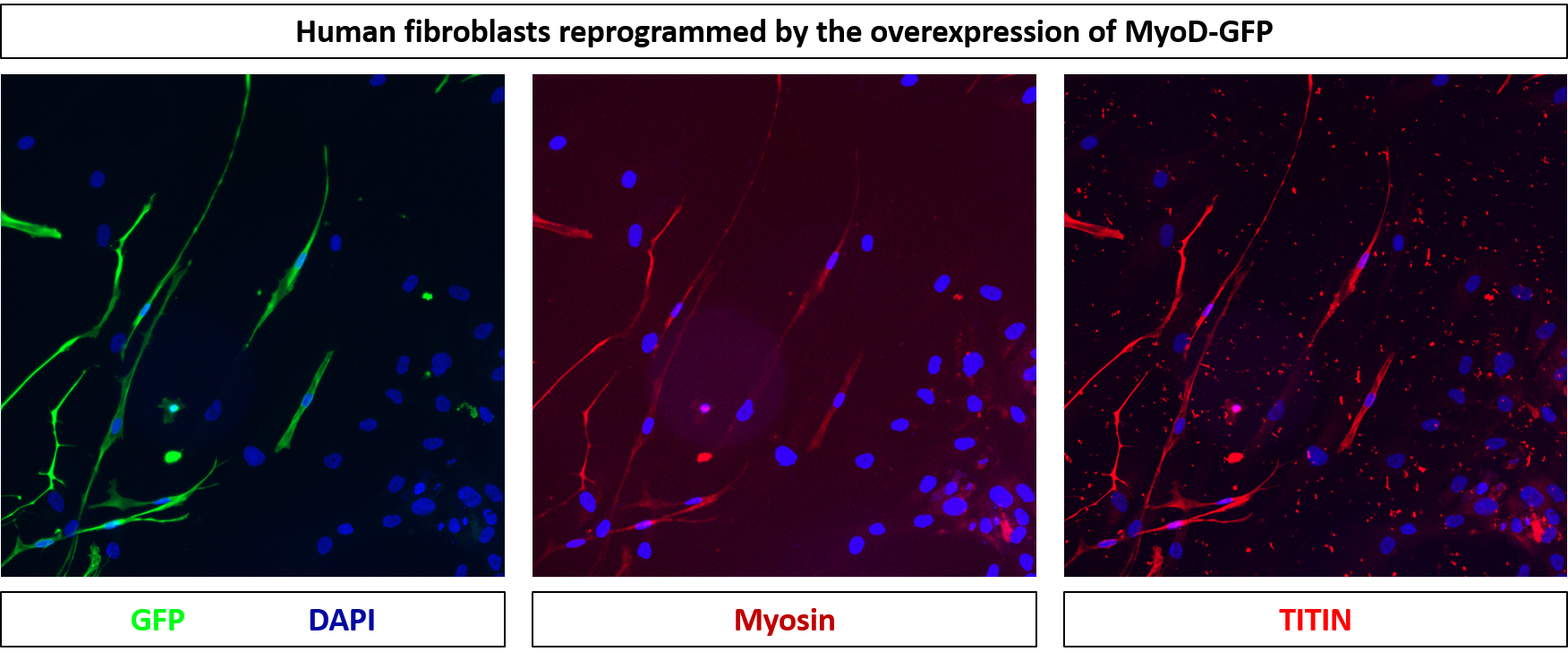 |
FH Joseph (Verified Customer) (01-14-2020) | I tested the Titin antibody using IHC on 16uM mouse skeletal muscle sections (Tibialis anterior and Soleus) using 1:100 and 1:300 dilutions. Both dilutions worked very well.
|
